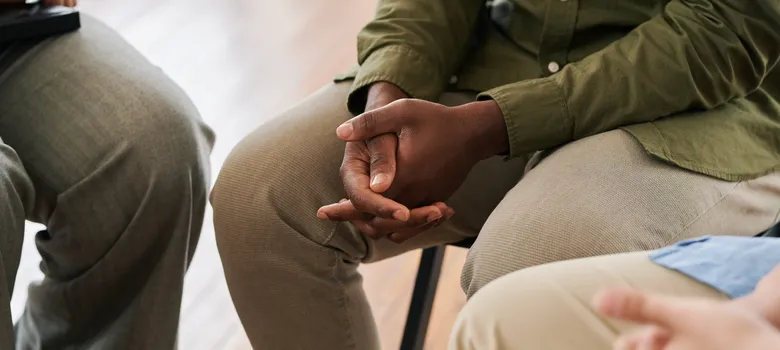Benzo Addiction Treatment Options: Benzodiazepine Rehab
When you or someone you care about faces benzo addiction, knowing what treatment options are available can make all the difference. There are several effective benzo addiction treatment options, such as detox, gradual dose reduction, therapy, and ongoing support for mental health.
Understanding Benzodiazepine Addiction
Benzo addiction affects both your mind and body in important ways. If you or someone you know is struggling, learning about benzodiazepines, addiction symptoms, and mental health connections can help you take the next step.
What Are Benzodiazepines?
Benzodiazepines, often called benzos, are medicines that affect the central nervous system. They’re most commonly prescribed for anxiety, insomnia, panic disorder, and sometimes muscle spasms or alcohol withdrawal.
Well-known examples include alprazolam (Xanax), diazepam (Valium), and lorazepam. These drugs work by increasing the effect of a brain chemical called Gamma-aminobutyric acid (GABA), which helps calm nerve activity.
While they can be helpful for short-term problems, longer use or misuse increases the risk of physical dependence and addiction. Many people become reliant on the sedative or euphoric effects of benzodiazepines, leading to a substance use disorder. The risk of dependence rises significantly with higher doses or long-term benzodiazepine use.
Signs and Symptoms of Benzodiazepine Abuse
Benzodiazepine addiction can cause both physical and psychological changes. Signs of dependence include strong cravings, tolerance or needing larger doses to feel the same effect, and withdrawal symptoms when stopping. Common symptoms include sedation, confusion, slurred speech, dizziness, and memory issues.
Prolonged benzodiazepine use may impair cognition, increase the risk of falls, and reduce quality of life. If you’re experiencing these symptoms, it may be time to seek treatment. The effects of benzodiazepines on mental clarity, emotion regulation, and physical coordination are well-documented and should not be overlooked.

Mental Health and Co-Occurring Disorders
Benzo addiction and mental health challenges often go hand in hand. Individuals may misuse benzodiazepines to manage anxiety, depression, or trauma. This misuse can lead to a harmful cycle of addiction. A dual diagnosis, where a substance use disorder coexists with a mental health disorder, requires a tailored treatment programme.
Treating both conditions simultaneously through integrated care improves outcomes. Cognitive behavioural therapy (CBT), psychosocial interventions for benzodiazepine harmful use, and regular mental health support can be essential in breaking the cycle of addiction and helping individuals develop healthy coping mechanisms.
Assessment and Comprehensive Evaluation
A thorough assessment is the starting point for treating benzodiazepine dependence. Getting a clear understanding of your symptoms, drug use, and health history is essential for guiding the recovery process.
Initial Evaluation and Diagnosis
Treatment begins with a comprehensive assessment by a qualified clinician. This includes a discussion of benzodiazepine use history, medical and psychiatric conditions, and any previous attempts to stop using. Structured tools and blood tests may help identify tolerance and withdrawal symptoms or other complications.
This assessment informs the treatment plan, which should also consider personal goals and the severity of the addiction. Identifying co-occurring disorders or medical concerns early on allows for better management throughout the recovery journey.
Individualised Treatment Planning
A personalised treatment plan should address every aspect of your addiction, including psychological, physical, and emotional health. Plans might involve benzodiazepine tapering, outpatient or inpatient treatment, and therapy. Family input, addiction triggers, and long-term recovery goals are also factored into the planning process.
Benzo Addiction Treatment Options
Benzo addiction treatment options can involve several steps, including medically supervised detox, therapy, and ongoing support. Professional care helps you manage withdrawal symptoms, lower the risk of relapse, and build skills for long-term recovery.
Medically Supervised Detoxification
Benzodiazepine detox should always be medically supervised due to the risk of severe withdrawal symptoms. Treatment centres typically use a tapering strategy, or gradually reducing doses of benzodiazepines to limit withdrawal risks. Medical supervision helps manage benzodiazepine withdrawal symptoms like anxiety, tremors, insomnia, and in rare cases, seizures.
Benzodiazepine withdrawal management often includes supportive care, monitoring of vital signs, and possible medication-assisted treatment to ease symptoms. Detox can last several days to weeks, depending on how long you’ve been using benzodiazepines and the doses involved.
Inpatient and Outpatient Treatment
Inpatient treatment provides round-the-clock care in a structured rehab facility. It is ideal for people with severe benzodiazepine dependence or those lacking stable home support. Outpatient treatment allows more flexibility and is suitable for those who can safely manage withdrawal symptoms at home with clinical support.
Both inpatient and outpatient benzo rehab programmes may include group therapy, individual counselling, relapse prevention planning, and support services. Consistently attending treatment, whether residential or outpatient, is vital for achieving long-term recovery.

Therapy and Psychological Support
Therapy is a cornerstone of benzodiazepine addiction treatment. For instance, Cognitive Behavioural Therapy (CBT) helps patients identify and change thought patterns that drive addiction, while Dialectical Behaviour Therapy (DBT) improves their emotion regulation.
Support groups and peer-led meetings provide community and accountability. Therapy options may also include addressing trauma, learning relaxation strategies, and improving self-esteem. These interventions for benzodiazepine harmful use can significantly reduce relapse rates.
Medication-Assisted Treatment and Support Services
While pharmacological interventions for benzodiazepine withdrawal are limited, certain medications may help manage symptoms or underlying mental health conditions. Diazepam is commonly used during tapering for its long-acting effect. Doctors might prescribe additional medications for anxiety or sleep, though only when clinically justified.
Support services, including case management, housing assistance, and legal advocacy, are also available in some rehabilitation centres. A good treatment programme offers ongoing care, life planning support, and relapse prevention services tailored to your needs.
Challenges and Considerations in Benzo Rehab Treatment
Recovery from benzodiazepine addiction involves careful management of withdrawal symptoms and a strong focus on relapse prevention. Ongoing support for co-occurring mental health disorders is also crucial.
It’s important to address both the physical and psychological aspects of addiction for a safe and effective journey to wellness.
Managing Withdrawal and Side Effects
Benzodiazepine withdrawal can be physically and emotionally intense. Symptoms of benzo withdrawal can include headaches, agitation, impaired coordination, and hallucinations in extreme cases. Benzodiazepine discontinuation must be closely monitored.
Slow tapering, hydration, nutritional support, and emotional care all play a crucial role in safe withdrawal management. For chronic benzodiazepine users, withdrawal should never be rushed, as doing so increases the risk of complications.

Preventing Relapse
Relapse prevention focuses on developing coping skills, modifying daily habits, and engaging in ongoing therapy. Identifying addiction triggers, creating relapse plans, and fostering social support are essential. Involving family or close friends in the recovery process can improve outcomes.
Rehab treatment centres often provide aftercare support, including follow-up therapy and check-ins. Long-term support significantly reduces the chance of relapse and increases treatment success rates.
Supporting Mental Health Throughout Treatment
Treating co-occurring disorders during addiction recovery is essential. Many individuals initially begin using benzodiazepines to treat anxiety, depression, or PTSD. Neglecting these conditions increases the risk of relapse.
Combining addiction and mental health support ensures a holistic recovery approach. Mental health reviews, psychiatric care, and behavioural therapy all strengthen outcomes and offer the best chance for lasting recovery.
Focus on Personalised Recovery at PROMIS
For many people navigating benzodiazepine addiction, finding the right environment to recover makes a real difference. PROMIS provides a calm and supportive environment where you can step back from everyday pressures and participate in structured, evidence-based treatment.
With experienced clinical staff and a focus on both physical and emotional well-being, it’s a space where lasting recovery can begin.
Frequently Asked Questions
What are the initial steps in treating benzodiazepine dependency?
Begin by consulting a medical professional for a thorough assessment. Gradual tapering and a personalised treatment programme reduce the risks associated with withdrawal.
Which medications are commonly prescribed for managing benzo withdrawal symptoms?
Diazepam is often used due to its long half-life. In some cases, other medications may be prescribed for symptom relief, but always under medical supervision.
How do behavioural therapies contribute to the treatment of benzodiazepine addiction?
CBT and similar therapies help address the psychological side of addiction. They teach healthy coping mechanisms and reduce reliance on substances.
What role do support groups play in recovery?
Support groups such as 12-step programmes or local peer-led meetings offer structure, community, and motivation. They also help you stay engaged after leaving treatment.
How can one identify benzodiazepine intoxication in an individual?
Signs include slurred speech, confusion, poor coordination, and extreme drowsiness. In severe cases, benzodiazepine overdose may suppress breathing.
Are there any alternative therapies recommended for overcoming benzodiazepine addiction?
Mindfulness, yoga, and acupuncture may support recovery. These methods can help manage stress, although they should not be used as a substitute for medical or clinical care.
